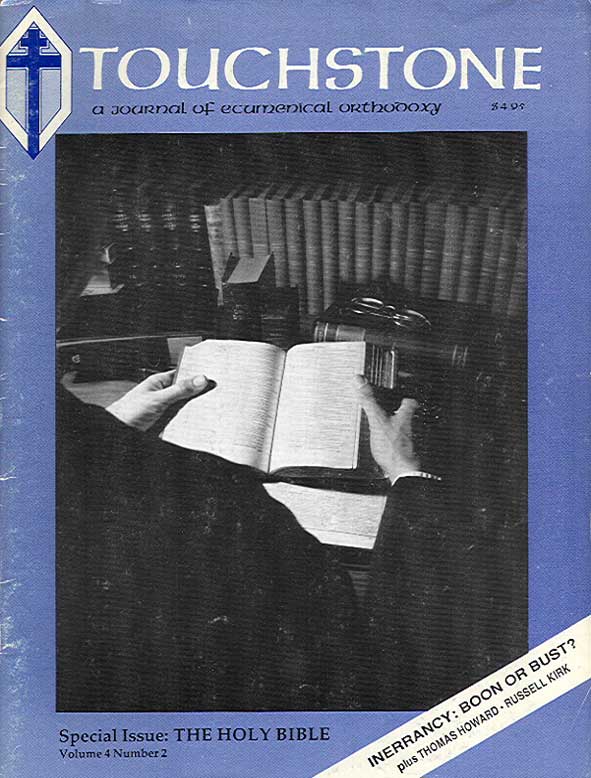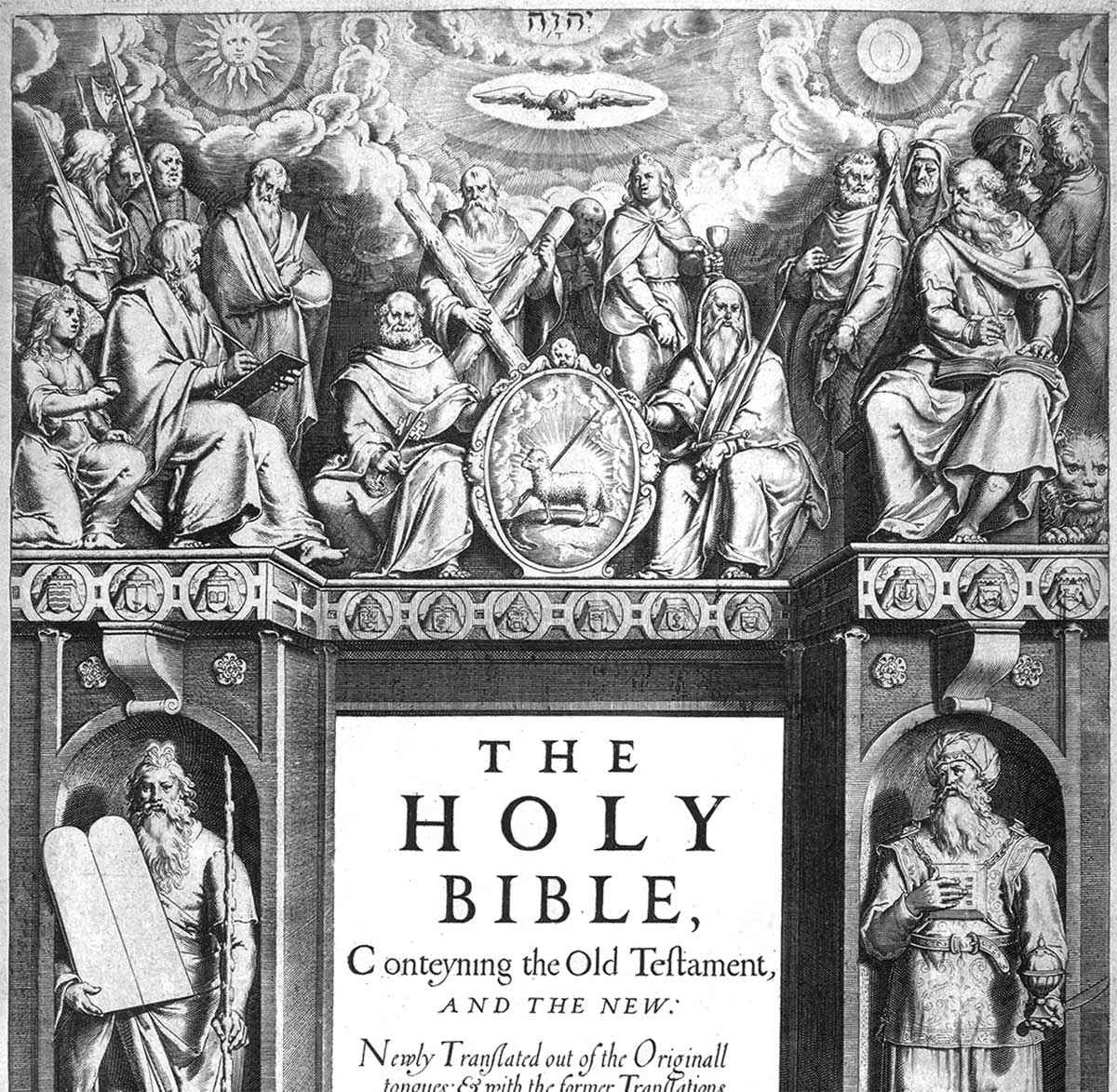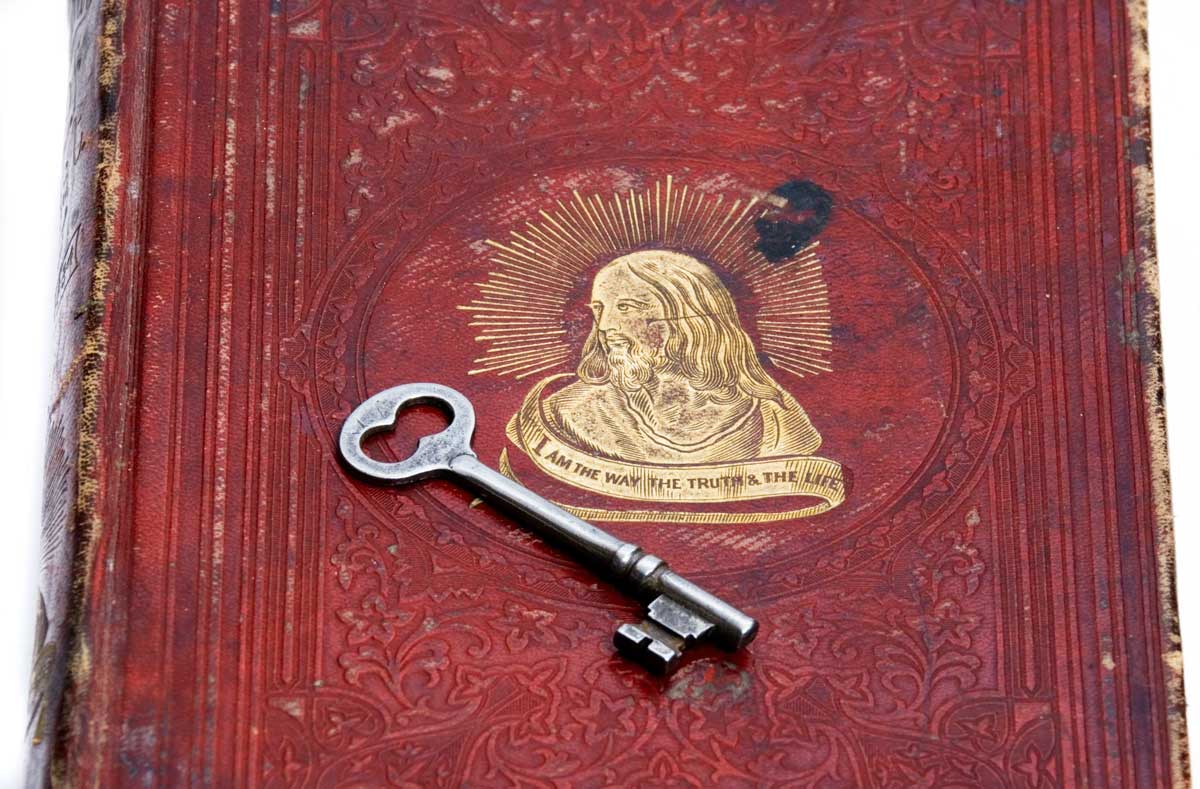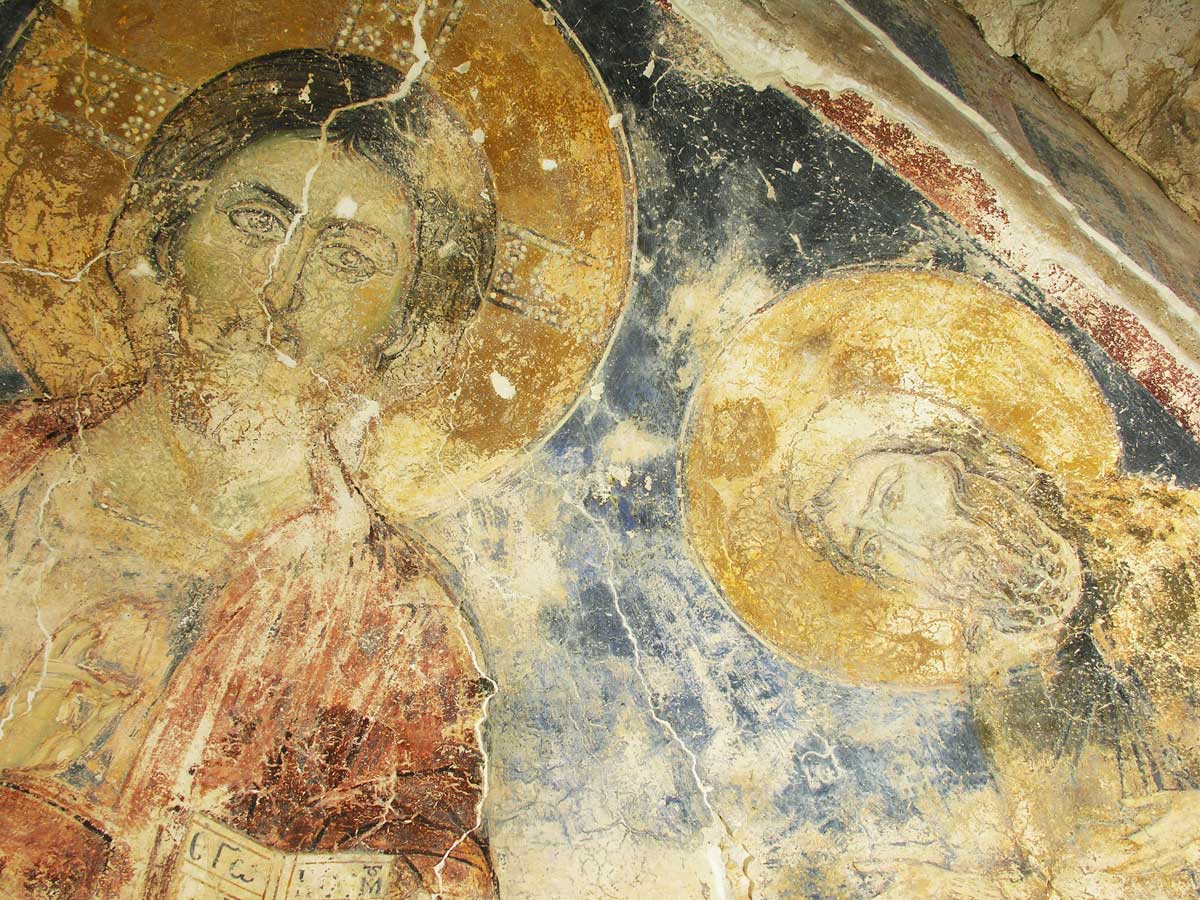A Response to The Bible Under Spirit & Church
by Carl F. H. Henry
Steven Hutchens proposes to redirect the course of church history toward a new ecumenism—post-evangelical and post-Reformational, and transcending also the ancient cleft between Eastern Orthodoxy and Roman Catholicism. To achieve this, he seeks as an “evangelical catholic” to detach evangelical orthodoxy from its commitment to the inerrancy of the Bible and to advance instead a different religious authority structure, one that perceives “the Spirit of God” as speaking authoritatively “by, in, and to the Church through the writers of Scripture.”
This is no modest effort, for it would overshadow and antiquate formation of the World Council of Churches, the World Evangelical Fellowship, the vaunted achievements of Vatican I and II, the Protestant Reformation, and the cleft between Catholicism and Orthodoxy. It would provoke a colossal debate over the doctrine of the Church, a rubric that Evangelical Protestants have all too largely ignored in their concentration on doctrinal commonalities and on shared evangelistic and educational goals. If out of today’s diversity of churches and denominations Hutchens can actualize what Jesus so strikingly identified in the singular as “my church” (Matt. 16:18) it would be nothing less than an incomparable miracle.
Hutchens is no theological illiterate. In 1989 he received a doctor of theology degree from the Lutheran School of Theology at Chicago where he completed a dissertation on the subject “Knowing and Being in the Context of the Fundamentalist Dilemma: A Comparative Study of the Thought of Karl Barth and Carl F. H. Henry.”
One main segment of that effort Hutchens devoted to an extended criticism of the doctrine of biblical inerrancy. In this present essay he similarly depicts the inerrancy of the Bible as a “mortally flawed” doctrine that “the enlightened” perceive to be theologically unworthy and as an indefensible “shibboleth” retained by Evangelical institutions only “for mollifying a constituency who have never been let in on the real issue.”
Hutchens now lashes out against conservative churches, schools and agencies that are reluctant to add biblical errantists to their preaching or teaching staffs. To support his claim that anti-inerrancy sentiment increasingly pervades conservative campuses Hutchens quotes a letter from the department head of an Evangelical college who voices open regret over the exclusion of a candidate from a faculty post because of an institutional doctrinal statement that, he says caustically, “has more to do with the needs of the institution than with the opinions of the members of this department. . . . The institution insists that certain expressions, however generously defined, be affirmed. . . .”
It is apparent that Hutchens considers the most formidable epistemological adversary of his revised ecclesiology to be not Catholic or Orthodox or non-Evangelical Protestant options—about which he expresses some passing reservations—but rather the view prevalent among orthodox Evangelicals and reflected in America, for example, by the National Association of Evangelicals, the Evangelical Theological Society, the International Council on Biblical Inerrancy, and the 1989 Evangelical Affirmations conference. He thinks Evangelicals bear this “burdensome” and “distasteful” yoke because inerrancy is “a conscientious heir of the sola scriptura tradition of Protestantism.” Although Roman Catholic theologians long espoused biblical inerrancy and one can quote Augustine and Thomas Aquinas also in support of it, Hutchens would discard it “in favor of the understanding of the nature of the Bible which has sustained the theological integrity of Eastern Christianity for almost two millennia.”
Hutchens thinks disagreements over the meaning of inerrancy undermine the term’s utility. Yet almost every theological (or other) term is capable of a variety of meanings, else unabridged dictionaries would be unnecessary. The Eastern Church had as much trouble decoding the meaning of Chalcedonian Christology as some Protestants have with a serviceable epistemology. In any case one does not turn to the fanatical fringes to fix the content of normative theology.
Before we inquire further into Hutchens’s alternative, it will be well to summarize and evaluate his complaints about the inerrancy doctrine. His chief complaint is that Evangelical Protestants contend for the inerrancy of autographs that nobody possesses, and that the inevitable consequence of such focus on the comprehensive authority of the long-lost and now-irretrievable original manuscripts is to undermine confidence in the serviceability of the only Bibles to which we now have access. If the Bibles we handle serve adequately to put us in touch with God, why associate divine authority only with inaccessible autographs?
On the surface this criticism seems justifiable. But the discussion of “access” and “possession” is, in fact, presuppositionally loaded. Forty years ago I pointed out to a professional society for biblical studies, where a somewhat similar complaint was voiced, that not only has nobody (at least in our century) “seen” the inerrant originals but, moreover, nobody has “seen” errant originals either. The decision about the inerrancy or errancy of the originals therefore turns not on what proponents or opponents “see” but upon the validity of their presuppositions about the nature of textual inspiration. In a footnote (number 3) Hutchens grants that an inerrant original remains a theoretical possibility but that it is not an absolute necessity. Given Hutchens’s presuppositions it becomes an unthinkable possibility.
Hutchens makes much of the contrast between inerrant originals and “imperfect copies”—or, as I prefer for good reason to say, “infallible copies.” Here both terms are important. By copies we mean duplications of the original-language autographs, in distinction from versions (translations) and paraphrases. The autographs are inerrant on the basis of divine inspiration; the copies, even when they are wholly accurate, are so only on the basis of the vocational skill of the amanuenses or copyists. The occasional textual variations found between families of texts—mostly singular or plural forms, verbal tenses, and other semantic minutiae—attest that no claim for inerrancy can be made in behalf of the copies per se.
Here the term “infallible”—which Rome ascribes to its ecumenical councils of bishops and the pope speaking ex cathedra—can be applied instead to extant copies of the non-extant autographs. The term “infallible” has a dual meaning. It is used as a synonym for inerrancy, and it is used also in the softer sense of “not prone to err.” In the first sense the autographs may be identified therefore as inerrant/infallible; in the second sense the copies may be declared infallible/not prone to err.
The fact that critical scholars have long noted that the discrepancies between the copies do not involve matters of doctrine or ethics, but only linguistic details, preserves the copies as the Truth of God written, since meaning and truth are carried by propositions or sentences, and do not attach to isolated words. Hence it is fruitless to argue, as does Hutchens, that one undermines the authority of the Bible if he insists on the inerrancy of the autographs. A spate of meditation would restrain the judgment that an Evangelical inerrantist must surrender his point or his probity or his reason if he ascribes inerrancy to the autographs and yet seeks to maintain significance for the Bibles we have. Every translation is, of course, a reduction, and faithful translation is answerable to the copies.
Hutchens is dissatisfied with the argument that “responsible specialists have weeded out so many of the probable errors” that the biblical text is now “so close to autographal perfection that for all practical purposes it may be called inerrant.” I agree that this way of stating the matter is confusing, and I am really unaware of its source. But there is an immense difference between a fallible copy of an inerrant original, and an inerrant copy of an errant original. In the latter case no norm for the detailed authority of Scripture can possibly exist. Hutchens contends that his rejection of autographical inerrancy is not necessarily a denial of inerrancy and is compatible with the inspiration and authority of the Bible. But he nonetheless espouses the divine inspiration of and the divine authority of an errant Scripture. Some have resorted to the notion of partial inerrancy which, as one commentator has put it, is akin to partial virginity; Hutchens himself ridicules this as the preposterous concept of virtual inerrancy.
Is it any wonder that, instead of discrediting the Holy Spirit with errant inspiration, and defaming divine scriptural authority as problematical, other critics have in their portrayal of Scripture more consistently widened the human speculative ingredient and narrowed the divine revelatory aspect: Hutchens is disposed to assign the Holy Spirit a larger than traditional-evangelical role, which presumably is to compensate for scriptural errancy. But he does not persuasively show how he avoids compromising the divine authority of the Bible when he connects inspiration and errancy while he professedly champions “a sublimely high view of Scripture.” Barth’s doctrine of Scripture may provide Hutchens “welcome relief,” but the morning-after consequences of a murky view that revelatory events “are mysteriously connected parts of the larger relationships of God to man” are evident in a continuing fallaway from the influence of neo-orthodoxy.
Hutchens disowns “the Truth of God . . . captive in the words.” Protestants, both liberal and conservative, “commit a fundamental error,” he writes, when they treat “Scripture as though it could be divided from the Spirit or the Church . . . for scientific examination.” Here one must surely welcome a recovery of a role for the Church that is not eclipsed by parachurches, and of a role for the Holy Spirit which is not dwarfed by independent spirit or by technological ingenuity. But every emphasis on a revised position for the Spirit and for the Church also requires careful scrutiny. Something about the eager plea for “The Bible Under Spirit and Church. Some Light from the East . . .” recalls Calvin’s comment on Rome’s insistence that we owe the Bible to the Church. They speak, remarked the Reformer, as if the daughter gave birth to the mother! For Scripture is not merely from the Church, but it is addressed to the Church and is the lifeline whereby Christ through the Spirit rules the new society.
The real issue, says Hutchens, is not whether God inspires error, but whether “he could or would work in and through that which is to some degree imperfect.” To this we must assuredly reply that “of course God can—even through confessedly imperfect prophets and apostles, let alone modern evangelists and theologians and Balaam’s ass as well.” But that does not answer the question whether the incarnate Christ was sinless or whether inscripturated revelation is errant.
Hutchens dismisses out of hand support for the doctrine of inerrancy found both in Scripture and in Church tradition, and declares the view “a modern text critical theory.” The facts are, however, that Hutchens’s view of an errant Scripture has no precedent in the biblical accounts and that the doctrine of the church fathers counts against it also.
Yet I have myself cautioned Evangelicals against making inerrancy the first (sometimes the only) thing said about the Bible. Even if many theologians and clerics impoverish the term “authority,” it is a claim to divine authority that the writers first and foremost make for the canonical writings. Scripture is not of human origin or authority: it is the Word of the Lord, as the Old Testament prophets reiterate literally hundreds of times. The next thing to be said about Scripture is its divine inspiration. The means by which it is rendered authoritative is the Spirit’s transcendent inspiration as a quality of the text. The logical implication of the fact that “all Scripture” is Spirit-breathed is that all Scripture is inerrant.
Hutchens emphasizes the power that the Holy Spirit has through the centuries exercised in the Church “manuscript variations, translational ambiguities and all.” The way to compensate for the absence of scriptural inerrancy, he contends, is “acknowledgment of the preeminent authority of the Spirit of God as he speaks in and through the Church Universal” from the mainstreams of which Evangelicals have relatively isolated themselves. That no Scripture is “of private interpretation” (2 Pet. 1:20 f.) Hutchens expounds in a footnote to rebuke Evangelicals and fundamentalists for isolating themselves from “the history of the church” and from “any appreciation for its authority.” If what certain critics have said is true, then Evangelicalism is “essentially sectarian,” he writes, “divided in its mind from the consciousness of the Church Universal,” and needs to be reintroduced to “thought patterns of the Church catholic.” The way to avoid “private interpretation” of Scripture is not to remain “outside the Community of the Spirit which binds us to the writers of Scripture” but to rely on “something the Holy Spirit does among us” in the Church. The writer of 2 Peter 1:20–21 focuses centrally not on “inspired scripture, but an inspired Church in which and under which only the Scriptures can be read and understood aright.” If Hutchens thinks the missing autographs are devastating for the cause of inerrancy, he might meditate overnight on how devastating the absence of such “a Church” is for his confidence in the nonprivacy of interpretation.
Insofar as Evangelicals teach and preach the essentials as Hutchens defines these, he remits their sins and considers them to be “within the Holy Catholic Church (inspired by the Holy Spirit)” along with “a very high view” of [errant] Scripture attested by “the Faith of the Church.” He does “not necessarily” exclude Evangelicals from it, nor adopt a view in which “one of the major divisions of Christendom is the rule by which all other churches are obliged to measure themselves.” It may not be obvious to Hutchens that he too similarly offers a rule, even if much vaguer, and that the Church’s faith and the Spirit’s inspiration that he invokes may be a supreme example of the very “private interpretation” he attributes to Evangelicals.
With some allowance for times when “the Church”—Western and Eastern—has held the Bible in priestly captivity and distorted its message (Hutchens does not tell us whether or not in his view the Protestant Reformation was justifiable) we may indeed be grateful that the Bible—even the versions and paraphrases which are answerable to the copies and through them to the autographs—functions as the Word of God in life and thought, and has done so in every age. Jesus appealed to the copies used by his Jewish contemporaries and warned that “Ye do err, not knowing the Scriptures” (Matt.22:29), and Paul could scarcely have exempted apostolic writings when he said that “all Scripture is God-breathed” (2 Tim. 3:16). It may be possible by an act of will to limit the claims of error one makes once the inviolability of Scripture is transgressed (John 10:35), but even Hutchens concedes that Evangelical anxieties that the admission of minor discrepancies in Scripture may lead ultimately to more radical rejection are “confirmed by a great deal of evidence in the Evangelical communion and Protestantism in general.”
When Hutchens comes to his benediction, it is to “the voice of the East, for the consistent orthodoxy of the Orthodox” that he commits Protestantism. Protestants and Roman Catholics, he says, have “a more brittle view of the authority structure within the living Church.” Instead, Hutchens hears the Bible “speaking of the authority of the Spirit of God—speaking by, in, and to the Church through the writers of Scripture, who are still alive in the Spirit, and speak through him just as they did in years past.”
Hutchens has reason for concern—the corrupted religious epistemology of contemporary Christendom, the defection from a theologically consistent view of authority, the broken unity of Christian believers and their failure to wrestle with the doctrine of the Church, and the widespread abandonment of authentic priorities due to a redefinition of the Christian mission. But he ventures to promote an answer that may harbor as many problems as it solves, not least of all the prominence he gives to the Church more than to God and his nonrecognition of Scripture as a comprehensively authoritative canon.
Carl F. H. Henry , eminent theologian and founding editor of Christianity Today, has written thirty-five books, including a six-volume work on God, Revelation, and Authority. He has served on the faculties of Northern Baptist Theological Seminary and Fuller Seminary, and has served as visiting professor at Trinity Evangelical Divinity School, Gordon Divinity School, and Wheaton College.
subscription options
Order
Print/Online Subscription

Get six issues (one year) of Touchstone PLUS full online access including pdf downloads for only $39.95. That's only $3.34 per month!
Order
Online Only
Subscription

Get a one-year full-access subscription to the Touchstone online archives for only $19.95. That's only $1.66 per month!
bulk subscriptions
Order Touchstone subscriptions in bulk and save $10 per sub! Each subscription includes 6 issues of Touchstone plus full online access to touchstonemag.com—including archives, videos, and pdf downloads of recent issues for only $29.95 each! Great for churches or study groups.
Transactions will be processed on a secure server.
more on bible from the online archives
more from the online archives
calling all readers
Please Donate
"There are magazines worth reading but few worth saving . . . Touchstone is just such a magazine."
—Alice von Hildebrand
"Here we do not concede one square millimeter of territory to falsehood, folly, contemporary sentimentality, or fashion. We speak the truth, and let God be our judge. . . . Touchstone is the one committedly Christian conservative journal."
—Anthony Esolen, Touchstone senior editor












